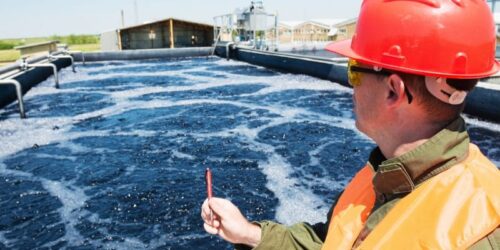EFFICIENT WATER MANAGEMENT IN CIVIL ENGINEERING PROJECTS
Water is a vital resource that plays a crucial role in civil engineering projects. From construction site management to infrastructure development, efficient water management is essential for sustainability, environmental protection, and cost-effectiveness. This article explores various strategies and best practices for achieving efficient water management in civil engineering projects.
- Water Conservation Measures: Implementing water conservation measures is the first step towards efficient water management. These measures involve reducing water consumption, reusing water where possible, and minimizing wastage. Some common practices include:
- Rainwater Harvesting: Collecting rainwater from rooftops, pavements, and other surfaces can help supplement water supply for construction site activities such as dust control and concrete curing.

- Greywater Recycling: Treating and reusing greywater from sinks, showers, and washing machines can significantly reduce freshwater consumption on construction sites.
- Efficient Plumbing Fixtures: Installing low-flow faucets, toilets, and showerheads can greatly reduce water usage without compromising functionality.
- Leak Detection and Repair: Regularly inspecting water supply systems and promptly repairing leaks can prevent wastage and save significant amounts of water.
- Stormwater Management: Effective stormwater management is crucial to prevent flooding, soil erosion, and water pollution. Civil engineering projects should incorporate proper stormwater drainage systems to control the flow of rainwater. Key strategies for stormwater management include:
- Permeable Pavement: Using permeable materials for pavements allows rainwater to infiltrate into the ground, reducing runoff and promoting groundwater recharge.
- Detention Ponds: Constructing detention ponds or retention basins helps capture and temporarily store excess stormwater, gradually releasing it into natural water bodies or infiltration systems.
- Vegetated Swales: Incorporating vegetated swales or bioswales in project designs helps filter stormwater runoff, removing pollutants and promoting groundwater recharge.
- Water Recycling and Treatment: In civil engineering projects, where large amounts of water are used for construction and site activities, implementing water recycling and treatment systems can significantly reduce water demand. These systems may include:
- Sedimentation Tanks: Installing sedimentation tanks helps remove suspended solids from wastewater, improving its quality for reuse or safe discharge.
- Filtration Systems: Employing filtration systems, such as sand filters or membrane filters, can further enhance water quality by removing finer particles and contaminants.
- Wastewater Treatment Plants: In larger projects, on-site wastewater treatment plants can be constructed to treat wastewater to a higher standard, enabling its safe discharge or reuse.

- Smart Water Management Technologies: Advancements in technology have led to the development of smart water management systems, which optimize water usage, monitor consumption, and identify inefficiencies. Some technologies that can be employed include:
- Remote Monitoring Systems: Using sensors and telemetry systems to remotely monitor water consumption, leak detection, and system performance can help identify issues and allow for timely interventions.
- Automated Irrigation Systems: Implementing automated irrigation systems with weather-based controllers ensures efficient water use in landscaping and green infrastructure.
- Water Management Software: Utilizing software applications specifically designed for water management can provide real-time data analysis, water demand forecasting, and decision support for improved water management strategies.
- Education and Training: Promoting awareness, education, and training among project stakeholders, including engineers, contractors, and workers, is crucial for efficient water management. Providing information on water conservation practices, efficient water use, and the importance of sustainable water management can foster a culture of responsible water use throughout the project.
Conclusion: Efficient water management is a fundamental aspect of sustainable civil engineering projects. By implementing water conservation measures, incorporating stormwater management strategies, utilizing water recycling and treatment systems, adopting smart water management technologies, and promoting education and training, civil engineering projects can optimize water usage, reduce environmental impact, and enhance overall project sustainability. Embracing these practices not only benefits the project itself but also contributes to the preservation of this precious resource for future generations.


